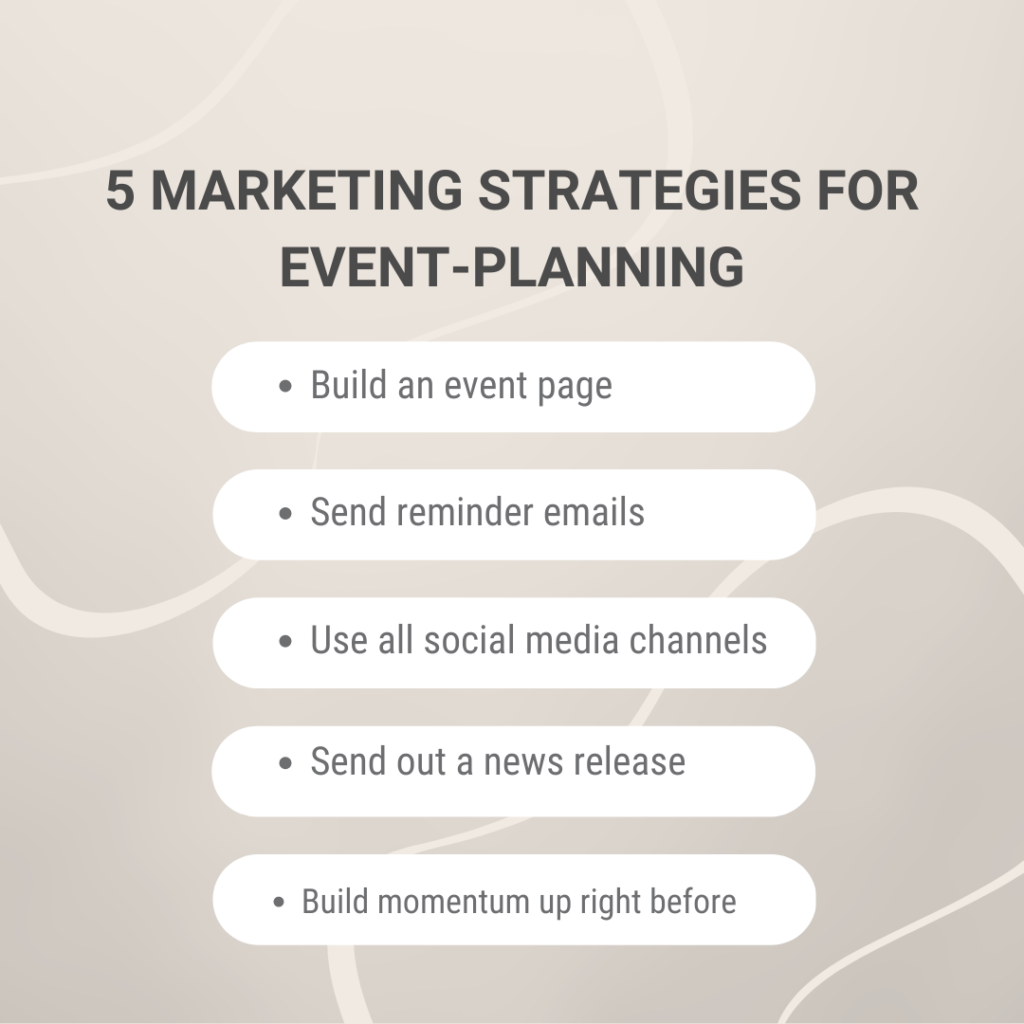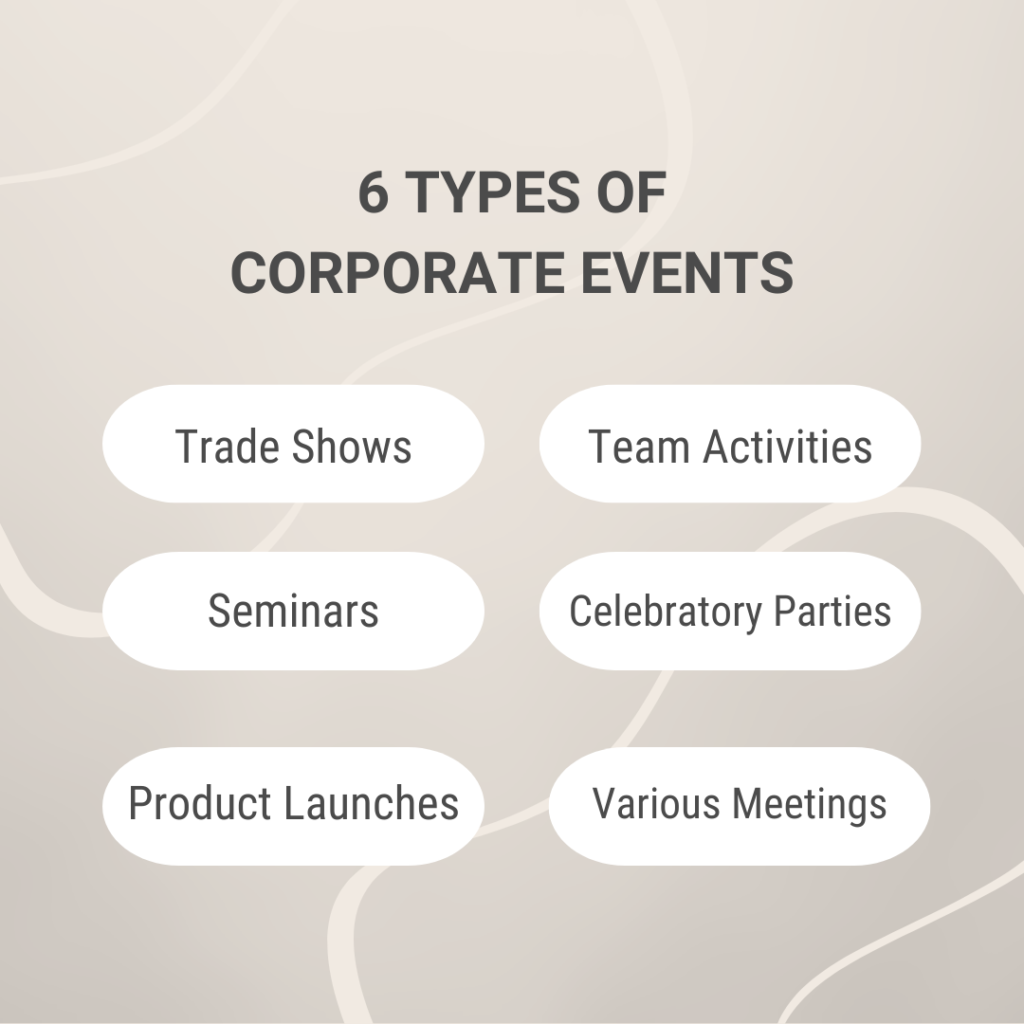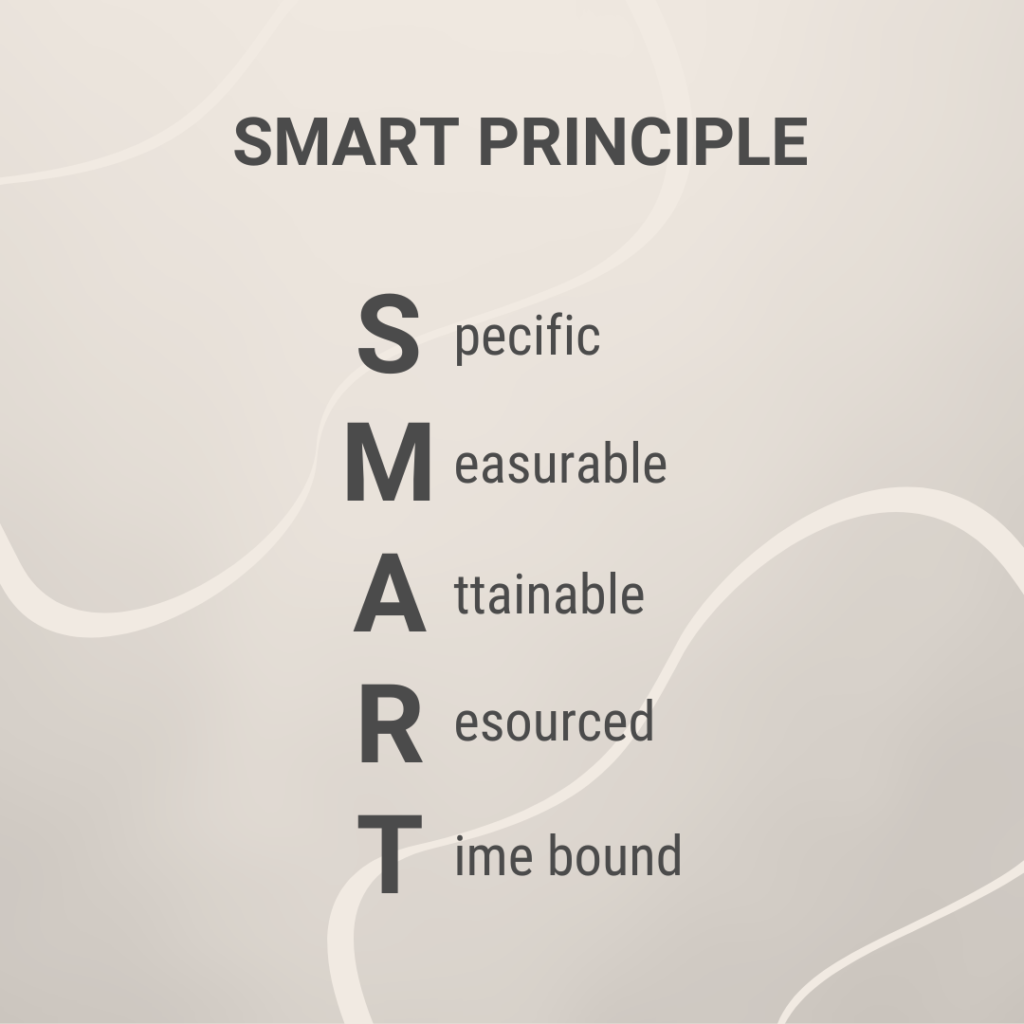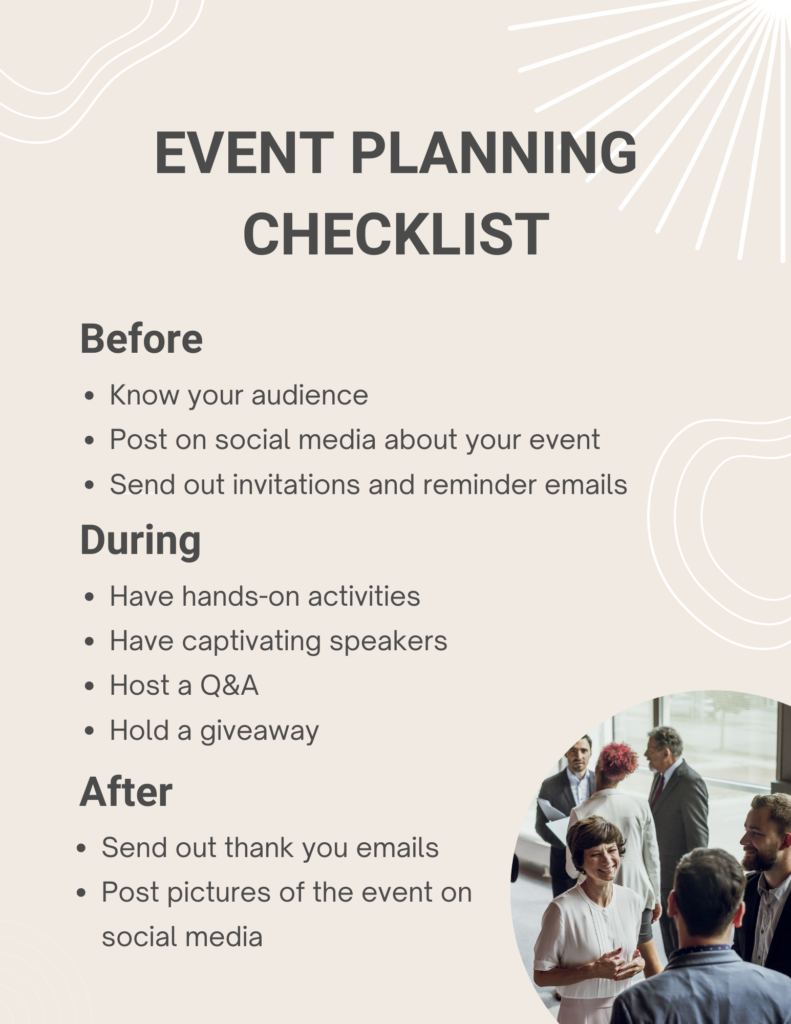Did you know that, on average, corporations that sell to other companies spend 29 percent of their marketing budget on events while corporations that sell to consumers spend 19 percent? If your corporation plans to invest a lot of money and time into an event, you want to know ahead of time that you’ll be getting your money’s worth. This article will teach you how to plan a corporate event.
Let’s start off by defining what a corporate event is. “Corporate event” is a broad term and can mean anything from a small company party like the ones you have in the back room after work to huge trade shows. Essentially, it’s any event put on by a business for their employees, clients, and/or potential clients. They may serve to show appreciation, make important changes to the company, celebrate milestones, onboard new clients, raise brand awareness, and anything else that might benefit a corporation.
Throwing an event can be fun and extremely vital to a company, but don’t let that fool you. There is a lot of planning and coordinating to make sure your event runs smoothly and brings your company the return on investment you are looking for, whether that be monetary or not. Let’s go through what you need to know before you begin planning your event, review the different kinds of corporate events, discuss defining your objective, and look at how to engage your guests.
What You Need to Know Before You Begin Planning Your Event
The planning process can be exhausting, but if you take the time to understand what you want from your event and how to execute it, you will have no problems. Let’s start off with who will be attending, what your budget looks like, where and when you plan to host the event, what the theme is, how you plan to market the event, and what you’ll do after the event.
Attendance
The number and the type of people attending your corporate event will be the determining factor for how you plan. Getting an accurate headcount can help you decide on location, catering, and budget.
When you send out invitations for your event, it is important that you have your guests RSVP so that you can get an accurate headcount. You can use websites such as eventbrite.com that keep track of who plans on attending. However, keep in mind that not everyone who RSVPs will come. You can get a better headcount if you have them purchase a ticket ahead of time. It is estimated that 90 percent of guests who pay for a $20 or more ticket will attend.
How early you close your RSVP list will depend on the type of event you are throwing. For example, if you are catering the event, you may need to know a few weeks before the event. Still, the longer you can keep it open, the better the outcome you will have since you are likely to get a few stragglers last minute.
Knowing when to start sending out invitations can be tricky. You don’t want to send them out so early that everyone ends up forgetting about the event. You also don’t want to send them out so last minute that no one has time to make plans. The type and size of your event will determine how many months in advance you should send them out. On average, it is recommended that invitations be sent out four weeks before an event.
Budget
Set your budget early on in your planning process. Your budget can control how your overall event will turn out, so it should be based on three things:
- How much your company can comfortably afford
- Expected return on investment
- Overall expectations
A common misconception is that you need to have a big budget to throw a great event, but that simply isn’t true. There are plenty of discounts and shortcuts that you can take advantage of if you plan right. For example, if you want to have a meal catered, you may want to opt out of getting dessert catered too, which would help cut the overall cost. Here are a few tips that will help you maintain your budget:
- Use tools like honey.com that give you money back on certain websites
- Pay for your venue in full ahead of time (Sometimes they will give you a discount if you do so.)
- DIY your decorations
Just remember to do your research before you decide on things like a cater, a venue, and entertainment.
Location and Date
You’ve heard it before, but location really is everything. Having an easily accessible location that brings excitement can double the number of guests that attend. Before you decide on a venue, answer these questions:
- Will it fit all of your guests comfortably?
- Does it have all of the amenities that will be needed?
- Do they offer any extra benefits like catering, setup and takedown, or security?
- Is it available on the date you are planning your event?
- Does it fit in your budget?
Next, consider the date. When you are picking a date for your event, make sure it makes sense. For example, if you are celebrating your company’s one-year anniversary, plan it for that date—not a month after. Other dates you should try to plan events around are holidays. Most of your guests will want to spend time with their families on holidays, so you wouldn’t have your company’s Christmas party on December 25.
When you are planning a date for your event, make sure you give yourself plenty of time. On average, it takes six months to plan a small event and upwards of 12 months to plan an event for thousands of guests. Being under a time crunch can cause unnecessary stress and may result in forgetting crucial details.
Theme
Planning the theme of the event can be the most enjoyable part. Let your imagination run wild when thinking of a theme. Make your theme unique but relatable to your guests. Your theme should be able to be connected to your company in one way or another. Be sure to take your venue, time of year, objective, and audience into consideration as well.
Once you have come up with your theme, you can use websites like pinterest.com to get decorating and tagline inspiration. From here, everything that has to do with your event should have the theme incorporated into it so you can start branding your event.
Marketing Strategy
How are you going to market your event so your guests will be excited about attending? Depending on the size of your event, you could market it a few ways. For example, if it’s a small, more intimate event, you can do it all by word of mouth and invitations. If it is a larger-scale event, you can market it virtually. Steve Olenski at Forbes gives five strategies that can help you get the word out about your corporate event if you plan to do it virtually:
By following these simple steps, you are sure to reach your target audience.
Postevent Plan
This is a detail that gets overlooked the most. By having a postevent plan, you can start marketing your next event by creating excitement and show your appreciation for your guests that attended. You can do this by posting small video clips of the event to your social media and thanking everyone for attending while announcing your next event.
Did you know that, on average, 19 percent of companies end up not having the right data to measure return on investment for their event? It is important to know what your return on investment is so you can better plan your events moving forward. If you are tracking nonmonetary elements like trust and loyalty to your company, you can put out surveys before and after the event. By doing this, you should be able to calculate how many more people would be more likely to trust the company.
Kinds of Corporate Events
Each corporate event style serves a purpose. Let’s go over the six main types of corporate events:
Trade Shows
Every year sees roughly 13,000 trade shows in the US. This only accounts for 40 percent of all trade shows worldwide!
The purpose of a trade show is to educate potential clients. By putting on a trade show, you can show appreciation for your vendors within the industry by giving them a chance to grow their business and network. You also have the chance to make a profit by charging entry and exhibitor fees. This is why the market for trade shows is huge.
Seminars
Seminars serve to educate large numbers of people at once. These are great events to have when introducing a new tool or product to your company. For example, if you get a new computer system, you can do a mass training instead of individually training each employee. These events are cost-effective and proficient.
Product Launches
Releasing a new product can be intimidating, but if you do a product launch event first, your product is bound to be successful. Product launches are usually called a soft launch because the product is only being shown to a few select customers. By hosting an event around your product, you are forming excitement for your customers. You are also able to receive honest feedback right away that you can take into consideration before you do a hard launch.
Team Getaways and Team-Building Activities
Team getaways and team-building activities go hand in hand. First, a getaway is a perfect opportunity to show appreciation for employees, which makes employees 63 percent more likely to stay with the company. Team-building activities, on the other hand, help employees and employers understand one another, helping them be more efficient as a team. So add a few team-building activities to your company getaway and hit two birds with one stone.
Celebratory Parties
Parties are unique because they give employees and clients a chance to connect on a personal level while also showing everyone your appreciation for supporting your company. By celebrating as a company, you build a culture in which individuals motivate each other to succeed and align with the mission and values of the company.
Various Meetings
There are hundreds of different types of meetings you can have as a company—stakeholder meetings, onboarding meetings, budget meetings, and yearly evaluation meetings, to name a few. Typically, the point is to educate and understand the status of various topics.
As you can see, each type of event plays an important role in helping a corporation succeed. The thing that matters is your end goal. When you are deciding to do a corporate event, think about what you want to accomplish. By carefully deciding what type of event to do, you are more likely to achieve the results you want.
Understanding the Objective of the Event
A good objective is a great place to start, but what makes a good objective, and how can you understand what yours is? Understanding your objectives will help you know who to invite, what should be taught to attendees, and how you can measure results at the end of the event.
By using the SMART principle, you can easily break down the steps to develop a good objective.
- Be specific by focusing on one key element for each objective.
- Make it measurable.
- Your objective should be attainable and realistic to achieve within your time frame.
- Make sure you have the right resources for the event.
- Set a timeframe to stick to.
To fully understand your objective, write down what you want your attendees to take away from your event. For example, you may want your employees to feel appreciated and learn the basic tools of a new software. After you know what your takeaway goal is, you can start planning your event around your objectives. Look for themes and venues that can easily incorporate your objectives.
Engaging the Attendees
If your attendees are not engaged in your event, the event becomes meaningless. You need to make your guest excited to engage with your activities—before, during, and after the event.
Before the Event
The first step to getting your attendees to engage comes before the event starts. You want to know your audience. What do they enjoy doing? Do they like sports, or are they more interested in card games? This can help you plan for the theme of the event and what games to play during the event.
Next, you will want to add to the excitement by posting pictures of what the event will be like on social media. Make sure to post regularly on all of your social media channels.
Lastly, before the event starts, send out personalized invitations and emails. This will make the guests feel like you truly care about seeing them at the event.
During the Event
Once your event starts, you want to keep the momentum of engaging your guest going. Here are a few ideas:
Gamifying your event. Do this by adding in a few hands-on activities to help people retain knowledge (52 percent of people say it is the best way to learn).
Book captivating speakers. A captivating speaker can tell a great story your audience will want to follow along with, resulting in them being engaged with your objective.
Host a Q&A. After your guests have listened to a few speakers or learned something new, they most likely will have questions. You can do a Q&A to get people involved with the speakers directly and help answer questions the majority of your audience might have.
Hold a giveaway. A giveaway is a surefire way to leave attendees with a positive experience, especially when the items are useful and won’t be thrown away.
After the Event
Keeping your audience engaged after the event is just as important as keeping them engaged during the event, if not more. You want your guests to remember the objective after the event. A great way to do this is by sending thank you emails and posting the highlights of the event on social media.
Corporate Event Planning Checklist
This can be a lot to remember, so to help you keep track of all of these tasks for planning a corporate event, you can follow the checklist below:
Planning a corporate event doesn’t have to be stressful. Remember to implant these few steps: acknowledge what you need before you begin planning, understand what type of event you should do based on your objectives, and engage your attendees. If you are struggling with planning your corporate event or just want to relieve a little stress, try hiring a third-party event planner. Stage Marketing is a great option to consider. Not only do we offer assistance with strategically planning corporate events, but we also provide deliverables like emails and social posts before, during, and after the event, ensuring a successful and effective occasion.
This is only a broad overview on event planning. For a more detailed overview on how to plan a corporate event, contact us for a free template.





